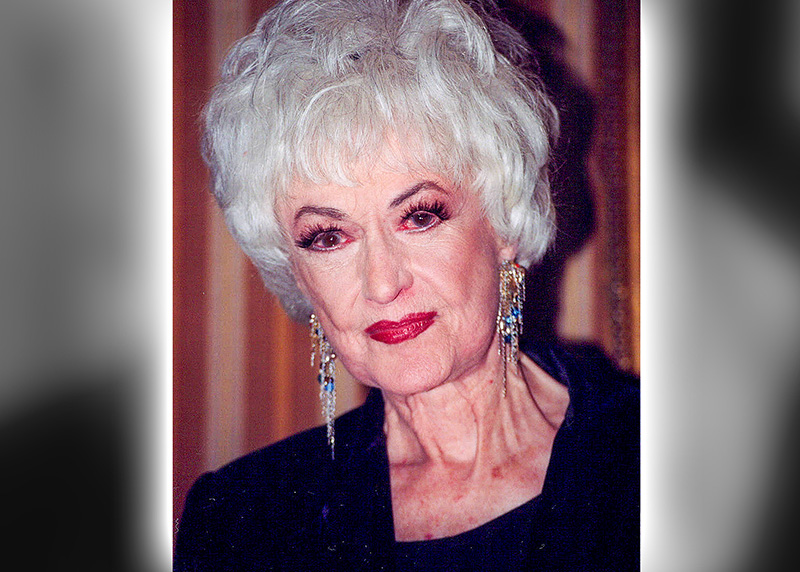Federal Appeals Court To Decide Transgender IDs Case
Three transgender women are challenging a law requiring them to undergo surgery before obtaining driver's licenses with accurate gender markers.

A federal appeals court will be tasked with deciding whether an Alabama policy that requires transgender individuals to provide proof of gender confirmation surgery in order to change the gender marker on their driver’s licenses is unconstitutional.
Last week, a three-judge panel of the 11th U.S. Circuit Court of Appeals heard the case of Corbitt v. Taylor, a case involving three transgender women who sued after state officials blocked their attempts to obtain driver’s licenses reflecting their gender identity. They are challenging an Alabama Law Enforcement Agency policy that prohibits state residents from changing the gender marker on their licenses without providing proof of surgical intervention.
The first plaintiff, Darcy Corbitt, an Alabama-born graduate student and ordained minister, had received a driver’s license with a gender marker identifying her as female while living in North Dakota, but was blocked from obtaining an Alabama driver’s license reflecting her correct gender identity when she returned to her home state.
Destiny Clark, a health care worker from Birmingham, was blocked from updating her gender marker three separate times, being told by ALEA officials she had to undergo surgery in order to do so. The third plaintiff, referred to as “Jane Doe” to protect her identity, was told she needed to have “the full surgery” in order to change her gender marker, regardless of the fact that she cannot afford to undergo the appropriate procedures.
Lawyers for the plaintiffs, from the American Civil Liberties Union and the Transgender Legal Defense & Education Fund, have claimed that the ALEA policy prohibiting the gender marker from being changed on driver’s licenses violates the privacy, due process, free speech, and equal protection rates of the three transgender women, as well as other transgender individuals in Alabama.
In January 2021, a federal judge found that the policy violates the Equal Protection Clause of the Fourteenth Amendment because it discriminates against the plaintiffs — and others — based on sex.
The state initially argued that the government has a vested interest in keeping the surgery requirement in place to ensure “consistency” between the gender marker on a person’s birth certificate and their driver’s license, and provides necessary “information related to physical identification” to law enforcement officers so they can know what to expect when patting down or searching individuals.
But the court ruled that those justifications were inadequate, and that the policy was not narrowly tailored enough to meet the alleged interests that the state purports to advance.
The court also ruled that the policy subjects transgender people to harassment and even the risk of violence when they have a license that does not match their outward appearance or gender expression, and causes “severe” injuries, including permanent infertility, by requiring people to undergo gender confirmation surgery, even if it is not medically necessary to treat their gender dysphoria.
The state quickly appealed the district court’s decision to the 11th Circuit, which agreed to take up the case.
Since the district court’s decision, all three plaintiffs have been able to obtain accurate driver’s licenses, but the state has made clear that if it prevails in court, it will rescind the licenses with the accurate gender markers. Prior to obtaining the corrected licenses, Clark and Doe had risked violence and harassment any time they were required to show their licenses, and Corbitt had been unable to obtain an Alabama license at all.
“After my out-of-state license expired, I had to rely on friends and family to help me pick up groceries, get to church and get to my job. I missed a family member’s funeral because I just had no way to get there,” Corbitt said in a statement. “But I was not willing to lie about who I am just to get an Alabama license that endangered and humiliated me every time I used it.”
Gabriel Arkles, a senior counsel for the Transgender Legal Defense & Education Fund, told Metro Weekly that the surgical requirement forces transgender individuals to “undergo a medical procedure that they don’t want or need, or in one person’s case, cannot afford,” referring to Doe’s circumstances.
“This medical procedure has absolutely nothing to do with one’s ability to drive,” Arkles said. “It has nothing to do with anyone’s ability to identify whether people are actually the holders of their license.”
“I know who I am. Transgender people know who we are, that’s not the issue,” Clark said in a statement. “The issue is getting the state to recognize our existence and just let us live without intruding into our private, medical records.”
The hearing before the 11th Circuit last week also comes as the Alabama House is considering a bill, SB 184, to criminalize medical professionals from providing gender-affirming care to transgender minors. Given Alabama’s insistence on imposing the surgical requirements, passage of SB 184 — barring any form of gender-affirming treatment — would effectively make it impossible for transgender-identifying youth to obtain a license until they were at least 19 years old.
In Alabama, where public transportation is practically nonexistent, such a change would leave transgender teens and young adults isolated in their homes, unable to travel to work, school, or even to places where they could purchase groceries or other life necessities without outside assistance — effectively condemning them to a form of solitary confinement and ostracizing them from the larger society.
“This case challenging Alabama’s law requiring surgery for transgender people in order to update their driver’s license is part of a broader conversation about states trying to take away people’s rights to make their own medical decisions,” Shayna Medley, a staff attorney at TLDEF, told Metro Weekly. “It is really part of the broader attack on people’s bodily autonomy and ability to make medical decisions for themselves as state governments attempt to ban medically-necessary transition-related care for transgender youth and impose bans on abortion throughout the country.”
Support Metro Weekly’s Journalism
These are challenging times for news organizations. And yet it’s crucial we stay active and provide vital resources and information to both our local readers and the world. So won’t you please take a moment and consider supporting Metro Weekly with a membership? For as little as $5 a month, you can help ensure Metro Weekly magazine and MetroWeekly.com remain free, viable resources as we provide the best, most diverse, culturally-resonant LGBTQ coverage in both the D.C. region and around the world. Memberships come with exclusive perks and discounts, your own personal digital delivery of each week’s magazine (and an archive), access to our Member's Lounge when it launches this fall, and exclusive members-only items like Metro Weekly Membership Mugs and Tote Bags! Check out all our membership levels here and please join us today!
























You must be logged in to post a comment.